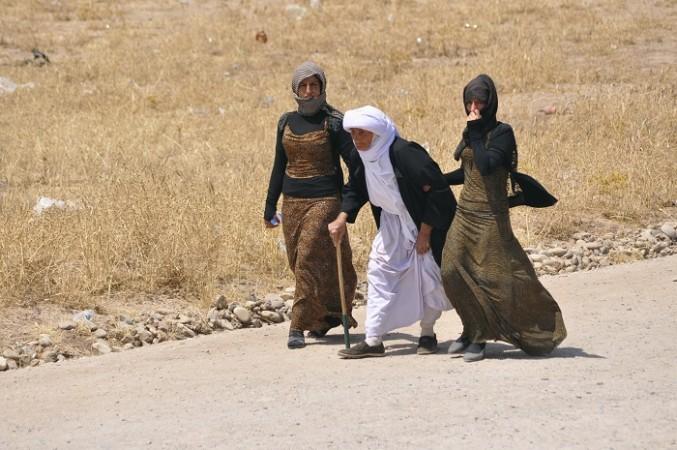
Even as rescue workers, along with the Kurdish forces, have been able to evacuate more than 35,000 refugees from the Sinjar mountains, latest reports claim that thousands of Yazidis are still stranded on the northern side of the mountains.
BBC reports that tens of thousands of civilians still remain trapped in the mountains and are in dire need of assistance.
A statement by UNHCR spokesperson Adrian Edwards claims that though up to 35,000 people have been rescured, an estimated 20,000 to 30,000 refugees still remain trapped in the mountains without food, water or shelter, and that access to these families is extremely limited.
However, Rudaw claims that the number is even higher. Based on the narrative presented by the rescued Yazidis, the Kurdish news source states there are still at least 35,000 more people trapped in and around the mountains, waiting for rescue.
And many among the trapped Yazidis still have not had access to the food and water air-dropped by the rescue workers.
"I heard of a drop on one side of the mountain, while the refugees were on the other side and did not know it was so near," a Yazidi man told the local daily.
The US, the UK and France are currently coordinating on getting the necesary food supplies to the marooned Yazidis.
The Independent, citing a UN official, noted that the humanitarian aids have to be delivered quickly now, as time is running out for the trapped Yazidis who have been without essential supplies since 3 August.
Thousands of Yazidis had run to the Sinjar mountains for safety, after the ISIS militants stormed the villages. It is also feared that the captured citizens are facing an imminent "genocide".
"The world was witnessing a tragedy of huge proportions unfolding in which tens of thousands of people are at immediate risk of death or violence by hunger and thirst," Chaloka Beyani, a UN official, told the daily.
.

















